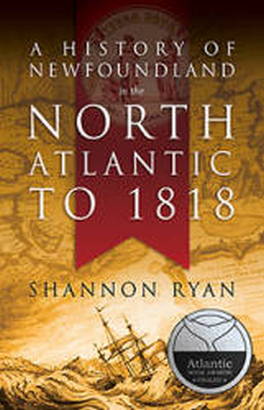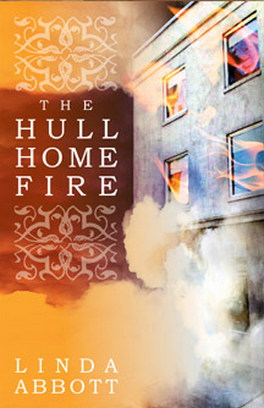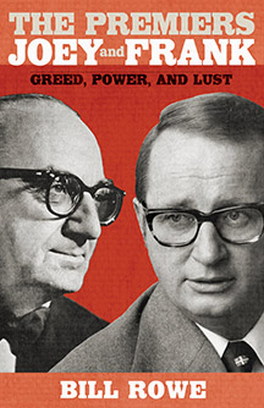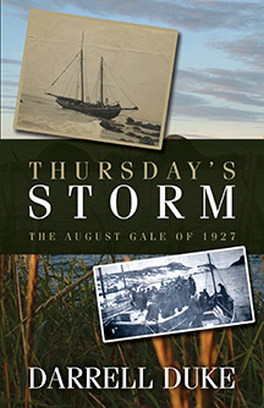The residents of Harbour Breton, a small fishing village in Newfoundland, claimed that it rained for forty days and nights. For forty days and nights, a prevailing southwest wind off the Grand Banks brought persistent rain, drizzle, fog, and sometimes torrential downpours. Root crops rotted in the ground, paint peeled off houses and fences, brooks and rivers overflowed their banks, and ponds and lakes swelled to bursting. In the early morning of August 1, 1973, the earth could take no more. A mudslide, originating one thousand feet up the steep southside hill, cascaded down with explosive force. It crossed the road and smashed into four houses, tore them from their foundations, and swept them toward the sea. Twenty-two souls were hurled from their beds in a fury of destruction. By the grace of God, the majority survived, but four children—ages eight, seven, five, and four, all siblings—perished. This is the story of one town’s confrontation with disaster, and Jack Hickey’s night of terror during the landslide that took away his four children. #11 on the Quill & Quire BookNet (Canadian History) Bestseller List (for the two weeks ending November 4, 2012)
The summer of 1973 in Harbour Breton is best described as eerie. For forty days and forty nights it rained, soaking the earth and dampening spirits. Angry claps of thunder boomed from the heavens and flashes of lightning created strange shapes in the murky sky. For forty days and forty nights a dense, suffocating fog persisted like a silver shroud drawn tightly over one’s head. It was the silence, though, that was the most surreal. It was as if the fog and rain had smothered the wind, causing normal noises to be amplified in a distorted and dreamlike way. People went about their business like ghostly characters from a medieval novel, children whined excessively, and superstitious folks spoke of the end of the world.
On Tuesday, July 31, it was particularly eerie. Heavy fog stuck to the land, obscuring vision, and rain fell straight down in a torrent. Jack came home from work feeling tired, hungry, and poisoned with the weather. All day he had been toiling with the busted engine of the company’s fish truck, only to realize that it was beyond repair. It was peak fishing season and Jack was feeling an obligation to get the vehicle back in operation. As a result, he and his partner, mechanic Tom Pelley, decided to remove the engine block and take it to Grand Falls for reconditioning. It was the nearest place to get such specialized work done. It would take all day to complete such complicated work, and it was at least a four-hour drive over dirt road, maybe five if the fog didn’t lift. They would need to leave Harbour Breton and be on the road by four in the morning.
“I’ll need a bit of money for tomorrow. I gotta take an engine to Colonial Garage in Grand Falls,” Jack said to Olive during supper.
“How much will you need?” she asked.
“We’ll be gone all day. I’d better take twenty dollars,” he replied.
Olive visited the little family stash and returned with a twenty-dollar bill, plus a ten—a lot of money for a family of eight . . . over three days’ pay. Not every day would she have been able to have put her hands on that amount of cash.
“Take thirty . . . just in case,” she said, handing him the money. She knew, of course, that the money would be reimbursed by the company once Jack returned and submitted his receipts.
Jack opened his wallet, one that had special meaning because Olive’s brother, Leo, had handcrafted it especially for him. The only other money in Jack’s wallet at the time was a one-dollar bill taped together with Scotch tape. This bill had a bit of a story to it. It was one that Maude Farrell had given to the boys, Eddie and Timmy, for some little chore they had done for her. An argument developed between the two boys over the bill, and they were snatching it from one another and tore it apart. Jack arrived home from work to find a big commotion going on with arguing and crying, so, to pacify them, he replaced the bill with a new one, taped the old one together, and put it in his own wallet.
When supper was finished, it was eight-year-old Pauline’s turn to help with the dishes. She was a good little girl and performed her duties diligently and was promptly paid a quarter. Pauline, however, was not pleased with her reward. It was not the value of the money that she didn’t like; it was the fact the coin was tarnished. She wanted new, shiny money and cast the old one to one side.
Jack inspected the weather, hoping to get outside to do some work around the garden. It was still raining and the fog was still thick. There was nothing he could do in this weather. Olive noticed Jack’s sour mood. “Why don’t you go over and have a yarn with Ralph?” she suggested.
“Perhaps I will,” Jack responded.
“I might dart over for a few minutes, too . . . after the youngsters settle down,” Olive said.
Jack and Olive often dropped in unannounced on their neighbours Ralph and Maude Farrell—it was the Newfoundland way.
There was a small, natural depression known as the trench that ran down the mountain, between Jack’s house and Ralph’s. Sometime during spring thaw or after a heavy rainfall, it would gather surface runoff; but, most times, it was dry. This summer, though, it was wet most of the time, and this evening the water had swelled as high as Jack had ever seen it. He made a mental note to caution the children not to play near it.
The talk of the evening was about the weather. Ralph and Maude were in their sixties and had seen plenty of rain and fog in Harbour Breton, but never anything like this. When would it end? they wondered.
Olive arrived just before nine o’clock. As she entered the kitchen, it was obvious that she had gotten soaked coming the short distance between the two houses. “’Tis pouring straight from the heavens, now,” she said.
“Take off ya wet jacket, maid, and have a cup of tea to warm up,” Maude said.
There was little time for idle chit-chat. As soon as her tea was finished, which also consisted of a small lunch adorned with a variety of Maude’s delicious, home-baked cookies, Olive reminded Jack that the children were alone and that he had an early rise in the morning. When they went back out into the night, the rain was still pouring and the fog was still clinging close to the earth.
“We’re going to have one hell of a drive to Grand Falls tomorrow,” Jack commented. Then he pulled his windbreaker over their heads and they ran, like two teenagers, over the path to their house. Quietly, so as not to wake the children, they crept into the porch and shook off the excess rain. Then, the same as they did every night before going to bed, they checked on the children. The two boys, who were usually well tuckered out by bedtime, were comfortably snuggled down and sleeping soundly. The three girls were more askew in their big bookcase bed, with arms and legs thrown across one another and entangled in bedclothes. In their slumber they were totally oblivious to the weather. Baby Cavell’s crib was on the far side of the same room, and she was sleeping peacefully, looking like a little princess. It was now around 10:30 p.m. Jack and Olive went to their room, went straight to bed, and with the sound of the rain beating on the roof, were soon fast asleep.
Sometime later, Jo-Anne awoke and, as she often did, sneaked into the living room to watch television, leaving the volume down so as not to alert her parents. She stretched out on the chesterfield and before long was asleep and dreaming as the television silently flickered away.
Bruce Stagg, a well-known Newfoundland writer, has done a remarkable job in telling the story of the landslide at Harbour Breton on Aug. 1, 1973, which destroyed four houses, injured nearly 20 people and killed Jack Hickey's four little children, sparing the eldest and the baby.-- PEI Guardian --
If you’re interested in reading a story about a man’s ability to press on with life despite adversity of epic proportions, get your hands on Landslide and read Jack Hickey’s story.-- The Charter --

-249173.jpg)





















